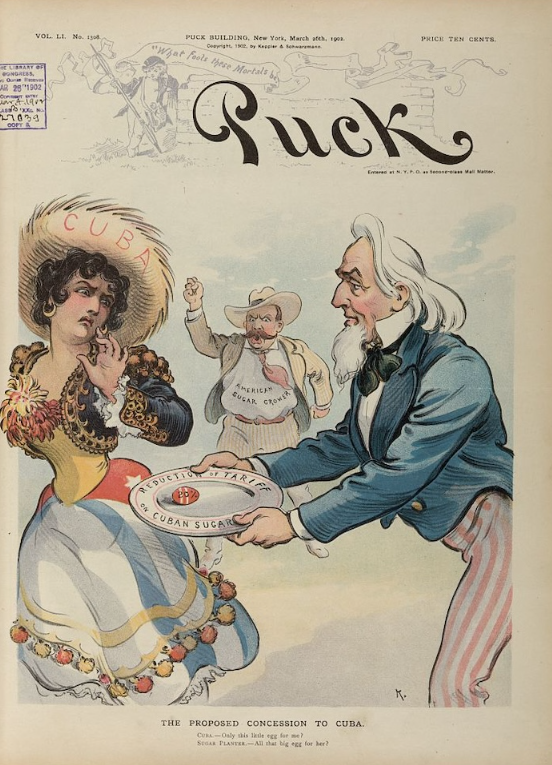Click Photo for See More

The illustration titled “The Proposed Concession to Cuba” was published in Puck magazine on March 26, 1902. Puck was a satirical American magazine known for its political cartoons, and it often used humor to comment on contemporary events and issues.
The cartoon is specifically about U.S. involvement in Cuba following the Spanish-American War of 1898. After the war, the U.S. had established a degree of control over Cuba, which was then a Spanish colony. Although Cuba gained its independence from Spain, the U.S. continued to exert influence over its affairs, especially through the Platt Amendment, which was added to the Cuban Constitution in 1901.
The Platt Amendment allowed the U.S. to intervene in Cuban affairs if necessary to preserve independence, and it also granted the U.S. control over certain areas, including naval bases like Guantanamo Bay. The cartoon likely commented on the perception that this arrangement was a concession from Cuba, where it appeared the U.S. was dictating terms despite Cuba’s formal independence.
In the image, Cuba may be depicted as a figure receiving an unwanted concession or being coerced, with Uncle Sam (representing the United States) playing a dominant role. The message of the cartoon was likely critical of U.S. imperialism and the imbalance of power in U.S.-Cuba relations at that time.
The Puck cartoon reflects the political climate of the early 20th century, where American foreign policy in Latin America was heavily influenced by imperialistic ambitions and the desire to maintain control over key territories in the Western Hemisphere. This piece is an example of how political cartoons used satire to challenge and critique the actions of powerful nations.
Since it was published in 1902, the image is in the public domain, meaning it is freely available for use and study. It can be found in archives such as the Library of Congress.